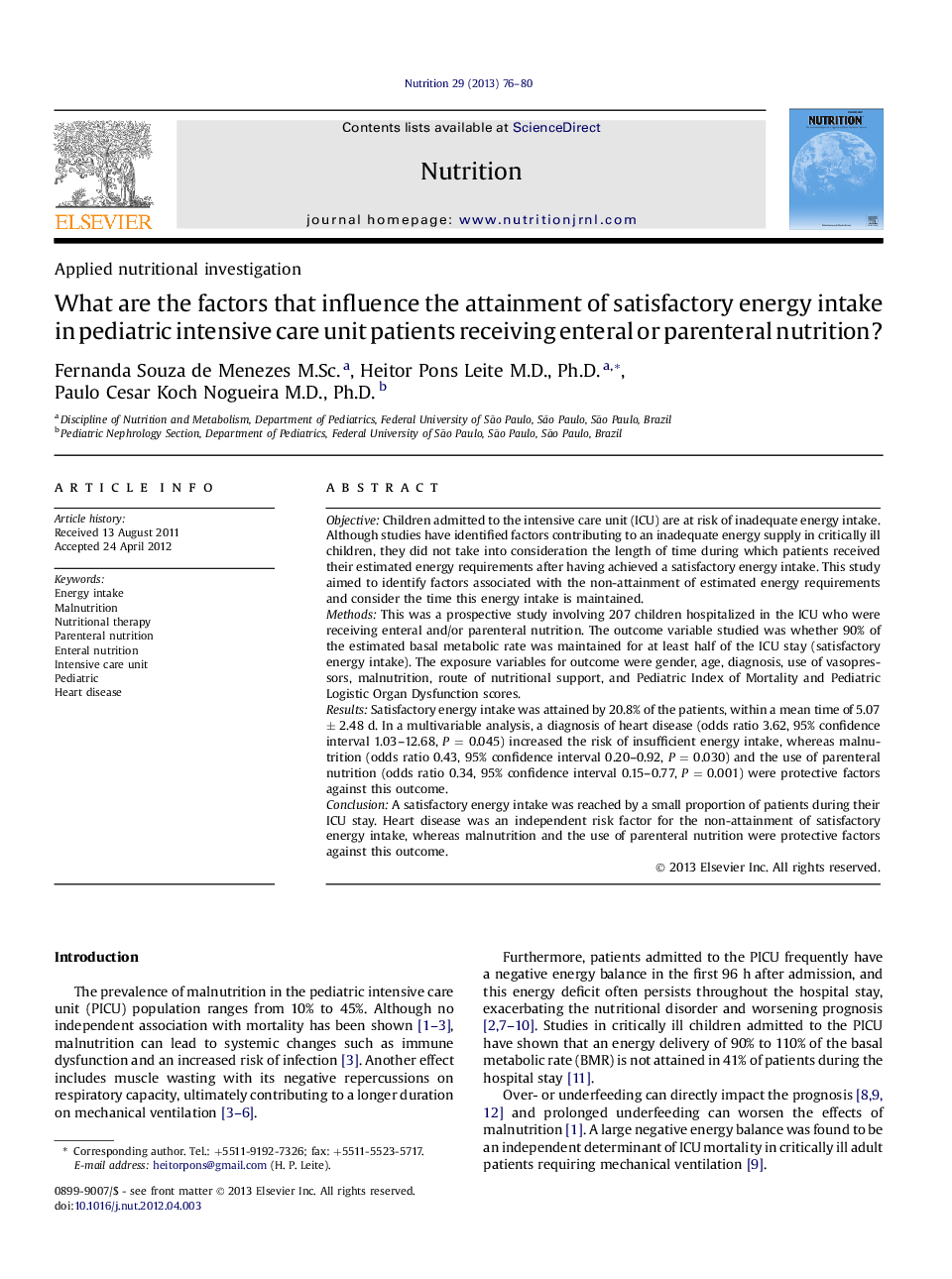| کد مقاله | کد نشریه | سال انتشار | مقاله انگلیسی | نسخه تمام متن |
|---|---|---|---|---|
| 6090070 | 1208564 | 2013 | 5 صفحه PDF | دانلود رایگان |
ObjectiveChildren admitted to the intensive care unit (ICU) are at risk of inadequate energy intake. Although studies have identified factors contributing to an inadequate energy supply in critically ill children, they did not take into consideration the length of time during which patients received their estimated energy requirements after having achieved a satisfactory energy intake. This study aimed to identify factors associated with the non-attainment of estimated energy requirements and consider the time this energy intake is maintained.MethodsThis was a prospective study involving 207 children hospitalized in the ICU who were receiving enteral and/or parenteral nutrition. The outcome variable studied was whether 90% of the estimated basal metabolic rate was maintained for at least half of the ICU stay (satisfactory energy intake). The exposure variables for outcome were gender, age, diagnosis, use of vasopressors, malnutrition, route of nutritional support, and Pediatric Index of Mortality and Pediatric Logistic Organ Dysfunction scores.ResultsSatisfactory energy intake was attained by 20.8% of the patients, within a mean time of 5.07 ± 2.48 d. In a multivariable analysis, a diagnosis of heart disease (odds ratio 3.62, 95% confidence interval 1.03-12.68, P = 0.045) increased the risk of insufficient energy intake, whereas malnutrition (odds ratio 0.43, 95% confidence interval 0.20-0.92, P = 0.030) and the use of parenteral nutrition (odds ratio 0.34, 95% confidence interval 0.15-0.77, P = 0.001) were protective factors against this outcome.ConclusionA satisfactory energy intake was reached by a small proportion of patients during their ICU stay. Heart disease was an independent risk factor for the non-attainment of satisfactory energy intake, whereas malnutrition and the use of parenteral nutrition were protective factors against this outcome.
Journal: Nutrition - Volume 29, Issue 1, January 2013, Pages 76-80
